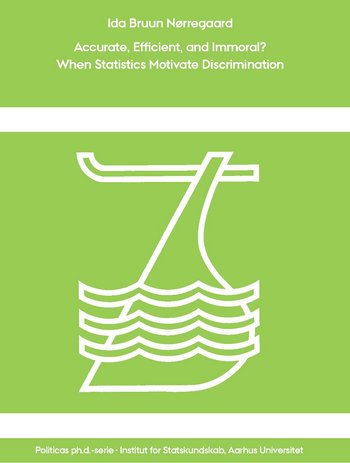Ida Bruun Nørregaard
Accurate, Efficient, and Immoral? When Statistics Motivate Discrimination

When hearing the word discrimination, many will instantly think of ways people have been treated badly and unfairly throughout history. Due to its historical and contemporary significance, much research has focused on exploring the structures and biases that drive people to discriminate. However, this focus on structures and biases might miss a central explanation for why people discriminate: because they find it morally acceptable or even good to do so. The dissertation explores when and why people accept discrimination, specifically how information about statistical group differences influences people’s acceptance. It further asks whether statistical group differences give us reason to accept discrimination. The dissertation is based on three articles. The first article uses two experiments to investigate whether employer intent and statistical group information affect acceptance of recruitment discrimination. The second article develops a normative framework to assess when statistical discrimination is morally unacceptable, focusing on objectification. The third article explores avenues to reduce acceptance of statistical discrimination based on an experiment that reframes discrimination using liberal or conservative value appeals or positive statistical group representations. The dissertation illuminates how information about statistical group differences makes values such as loyalty and efficiency salient in people’s judgments, proposes a normative argument against statistical discrimination, and demonstrates how conservative value appeals effectively reduce acceptance, while liberal appeals potentially polarize opinions. These findings underscore the complex interplay of moral values in shaping societal attitudes toward discrimination.
![]() Ophavsretten tilhører Politica. Materialet må ikke bruges eller distribueres i kommercielt øjemed.
Ophavsretten tilhører Politica. Materialet må ikke bruges eller distribueres i kommercielt øjemed.